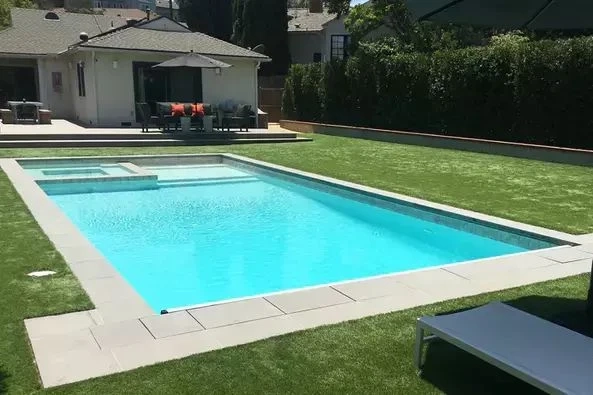When it comes to creating a luxurious and long-lasting oasis in your backyard, there's no doubt that a swimming pool is an excellent choice. However, before embarking on this exciting project, it's crucial to understand the differences between the two most popular options: concrete and gunite pools. Both offer unique advantages, but making an informed decision will ensure you discover the finest pool for your home. In this article, we'll delve into the key differences between concrete and gunite pools, enabling you to choose the perfect match for your lifestyle and preferences.
Understanding Concrete Pools
Concrete pools have long been cherished for their versatility and durability. These pools are constructed using poured concrete, reinforced with steel bars to provide strength and stability. Their ability to take on virtually any shape or size makes them a favorite among homeowners who desire a custom-designed pool that complements their outdoor space.
Benefits of Concrete Pools:
Customization: Concrete pools offer limitless design possibilities, making them ideal for those seeking a truly unique and personalized pool.
Durability: With their robust construction, concrete pools can withstand the test of time and endure various environmental conditions.
Luxurious Appeal: The smooth finish of a concrete pool exudes elegance and adds a touch of sophistication to any backyard.
Unveiling Gunite Pools
Gunite pools are a type of concrete pool that uses a specific application technique. The pool's structure is formed by spraying a mix of cement, sand, and water through a high-pressure hose. This method allows for precise shaping, making gunite pools another popular choice for homeowners seeking a tailored pool design.
Benefits of Gunite Pools:
Versatility: Gunite pools are highly adaptable and can be crafted to fit unique contours and architectural preferences.
Strength and Flexibility: The sprayed application of gunite allows for a reinforced structure, making the pool resistant to cracks and settling.
Efficient Construction: Gunite pools can be built relatively quickly, allowing homeowners to enjoy their pool sooner.
Concrete vs. Gunite: A Comparative Analysis
Construction Process:
The construction processes of both concrete and gunite pools involve skilled professionals who shape the pool to match the desired design. While concrete pools are built by pouring concrete into pre-constructed forms, gunite pools are formed using the gunite application method. In terms of customization and design possibilities, both options stand on equal ground.
Durability:
Both concrete and gunite pools boast exceptional durability due to their reinforced structures. However, gunite pools tend to have a slight advantage as the sprayed application allows for consistent reinforcement throughout the pool's shell, reducing the risk of cracking or settling.
Construction Time:
Gunite pools generally have a shorter construction period compared to traditional concrete pools. The spraying method expedites the process and enables homeowners to enjoy their new pool sooner.
Conclusion
In the Concrete vs. Gunite Pool battle, there is no definitive winner, as both options offer outstanding benefits to homeowners. The choice between the two largely depends on your specific preferences, budget, and timeline. If you prioritize maximum customization and are willing to invest in a pool with timeless elegance, a concrete pool may be the perfect fit. On the other hand, if you seek a slightly quicker construction process with excellent durability and flexibility, a gunite pool might be the ideal choice.
Ultimately, consulting with a professional pool builder will provide you with valuable insights and help you make an informed decision based on your unique needs. Regardless of your choice, both concrete and gunite pools promise to transform your backyard into a captivating oasis that will bring joy to your family and friends for years to come.


